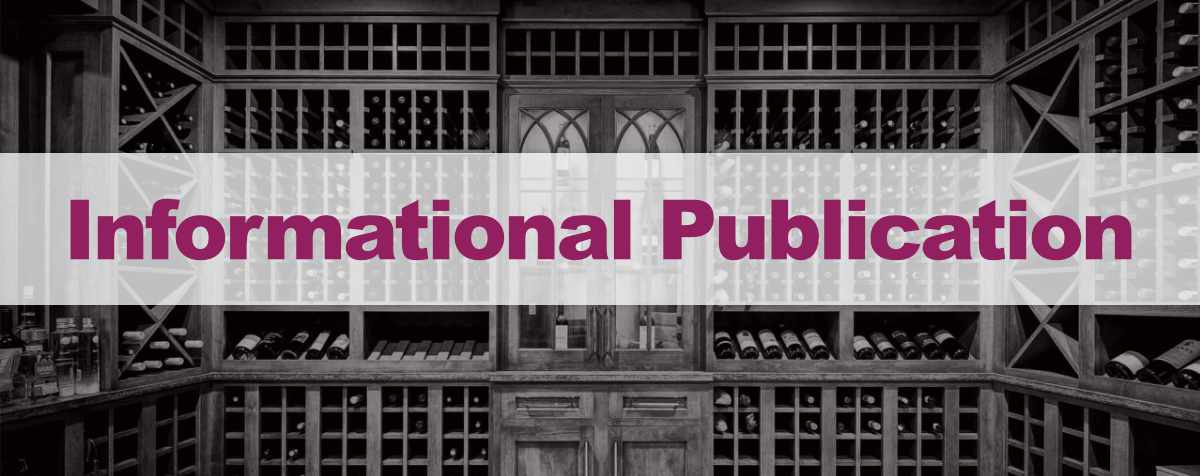
The wine industry is a flourishing and ever-evolving sector, with fine wines being highly sought after by enthusiasts and collectors all over the world. Becoming a fine wine importer and exporter presents an enticing opportunity to immerse oneself in this fascinating world while creating a lucrative business. In the information below, we will discuss the necessary steps to successfully enter the fine wine import and export business.
First and foremost, it is crucial to familiarize yourself with the wine industry and understand the market dynamics. This includes learning about different types of wines, grape varieties, and wine-producing regions. Additionally, investigate the wine market trends, key players, and target demographics. Identifying the most popular wines, emerging regions, and consumer preferences will help you tailor your product offerings and marketing strategies.
A well-crafted business plan is essential for any new venture. Your plan should outline your business objectives, target market, product portfolio, pricing strategy, and marketing tactics. It should also include a detailed financial forecast, with estimates of start-up costs, ongoing expenses, and projected revenues. A solid business plan will not only serve as a roadmap for your operations but will also be instrumental in securing financing, should you require it.
As a fine wine importer and exporter, you will need to comply with various local, national, and international regulations. Acquire the necessary permits and licenses, which may include:
Ensure you stay informed about the regulations in your target markets, as they may have specific import and export requirements or restrictions.
Developing strong relationships with wine producers and suppliers is crucial for success in this industry. Attend wine fairs, exhibitions, and conferences to meet potential partners and establish connections. This will also provide you with the opportunity to taste a wide variety of wines and understand the quality and characteristics of different vintages.
When selecting suppliers, consider factors such as quality, reliability, and pricing. It's essential to find partners who share your vision and commitment to quality, as this will ensure a long-lasting and mutually beneficial relationship.
Fine wines require proper storage and handling to maintain their quality and value. Invest in climate-controlled storage facilities with optimal temperature, humidity, and lighting conditions. Develop a logistics plan that outlines the transportation, warehousing, and distribution of your wine inventory. Partner with reputable shipping companies and customs brokers to ensure timely and efficient delivery of your products.
To succeed in the fine wine import and export business, you need to create a compelling marketing and sales strategy. This should include:
To remain competitive in the fine wine import and export business, it is crucial to offer a diverse and appealing product portfolio. This can include wines from established regions such as Bordeaux and Burgundy, as well as emerging markets like South Africa or Georgia. Additionally, consider diversifying your offerings with organic, biodynamic, and natural wines, which have been gaining popularity in recent years.
Customer satisfaction is key to the success of any business, and the fine wine industry is no exception. Provide exceptional customer service by being responsive to inquiries, offering personalized recommendations, and ensuring timely delivery of your products. Cultivating loyal customers will not only generate repeat business but also lead to valuable word-of-mouth referrals.
The wine industry is constantly evolving, with new trends, innovations, and market fluctuations. Stay informed about industry news and developments to ensure you remain competitive and can adapt your business strategy accordingly. Attend workshops, seminars, and training courses to further your knowledge and stay ahead of the curve.
Networking is essential in the fine wine import and export business. Engage with other industry professionals, such as sommeliers, wine critics, and journalists, to exchange insights and build your reputation. Collaborating with like-minded entrepreneurs and professionals can lead to mutually beneficial partnerships and help expand your reach in the market.
Becoming a successful fine wine importer and exporter requires passion, dedication, and a strategic approach. By following the steps outlined in this guide, you will be well on your way to establishing a thriving business in the captivating world of fine wine. Keep in mind that success may not come overnight, but with persistence, adaptability, and a commitment to excellence, you can carve a niche for yourself in this competitive and rewarding industry.■
The distraction-free information presented in this publication was thoughtfully curated and published by Wine4Cellars.com. It was developed for wine enthusiasts, connoisseurs, collectors, and investors with the help of advanced generative AI technology to provide a thorough and accurate understanding of the topic explored.
For inquiries, send a message to the email address below.